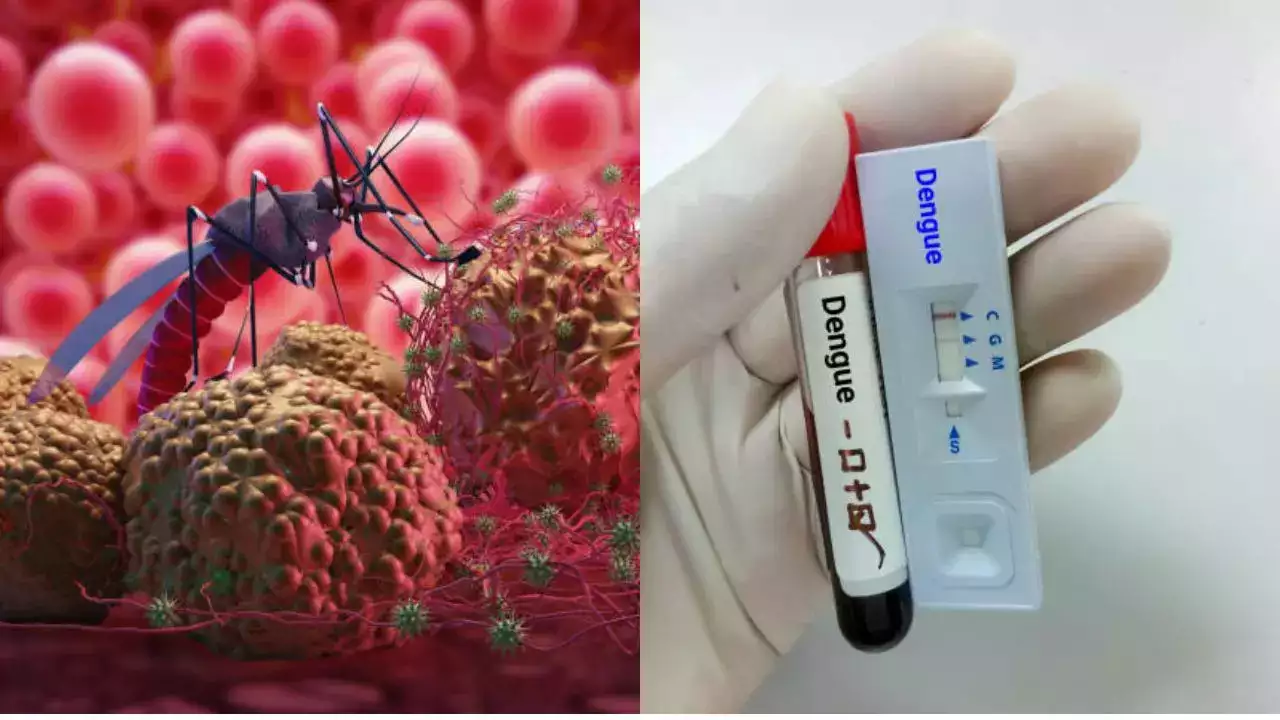
More than 7,700 deaths have been reported in the Caribbean and the Americas so far in 2024, a more than 200 increase
Cases of dengue fever are sweeping across the Caribbean and the Americas, with a record 12.6 million suspected cases of the mosquito-transmitted virus reported this year, nearly triple the number from last year, health officials informed. According to scientists, dengue has been surging globally as warmer weather due to climate change is enabling mosquitoes to spread all over.
The World Health Organisation has said that deaths from dengue fever, spread by the bite of mosquitoes infected with one of the dengue viruses, are also rising.
According to statistics, more than 7,700 deaths have been reported in the Caribbean and the Americas so far in 2024, a more than 200 per cent increase, compared to 2,467 deaths in 2023.
Director of Pan American Health Organisation Jarbas Barbosa said the number of cases in the entire region, which includes the United States, has seen the highest reported since record-keeping began in 1980. “This is linked directly to climatic events,” he said, referencing warmer temperatures, droughts and flooding. According to experts, population growth, unplanned urbanization, and poor sanitation have contributed to the rise in dengue.
What is dengue fever?
Dengue is an illness caused by the bite of a mosquito carrying one of four types of dengue virus, or DENV. The infection is not contagious from one person to another except when passed from a pregnant woman to her child. Usually, the symptoms of dengue are mild; however, they can become life-threatening with the worsening of symptoms.
Experts say the warning signs of severe dengue are usually seen 24-48 hours after your fever goes away.
Signs and symptoms of dengue
According to doctors, even though most dengue infections do not cause symptoms, even if you do have them, they include:
- Rash
- Intense pain behind your eyes
- Nausea or vomiting
- Muscle, bone and joint pain
Typically, the symptoms of dengue fever start to appear four to 10 days after a mosquito bite and last up to three to seven days. About 1 in 20 people sick with dengue will develop severe infection after their initial symptoms begin to fade.
How do you manage the symptoms of dengue?
Doctors say the only way to treat dengue is by managing your symptoms. You can do the following:
- Keep yourself hydrated by drinking plenty of water and fluids
- Get as much rest as possible
- Treat body pain with acetaminophen
- Do not take ibuprofen or aspirin, as they can increase your risk of life-threatening internal bleeding
Ways to prevent dengue
You can protect yourself from dengue by avoiding mosquito bites and vaccination. For protection, you must:
Use insect repellents that contain 20-30 per cent DEET
Cover exposed skin outdoors, especially at night when mosquitoes are more likely to be around
Remove standing water—in buckets or barrels, bird baths, and old tires—and fill low spots where water pools
Repairing window and door screens so that mosquitoes do not enter your home
Use mosquito nets at night
If you are pregnant, avoid traveling to areas where dengue is common if possible
When traveling, be sure to check with the CDC to understand if there are any outbreaks of illness in your destination before you leave
Get Latest News Live on Times Now along with Breaking News and Top Headlines from Health and around the world.
